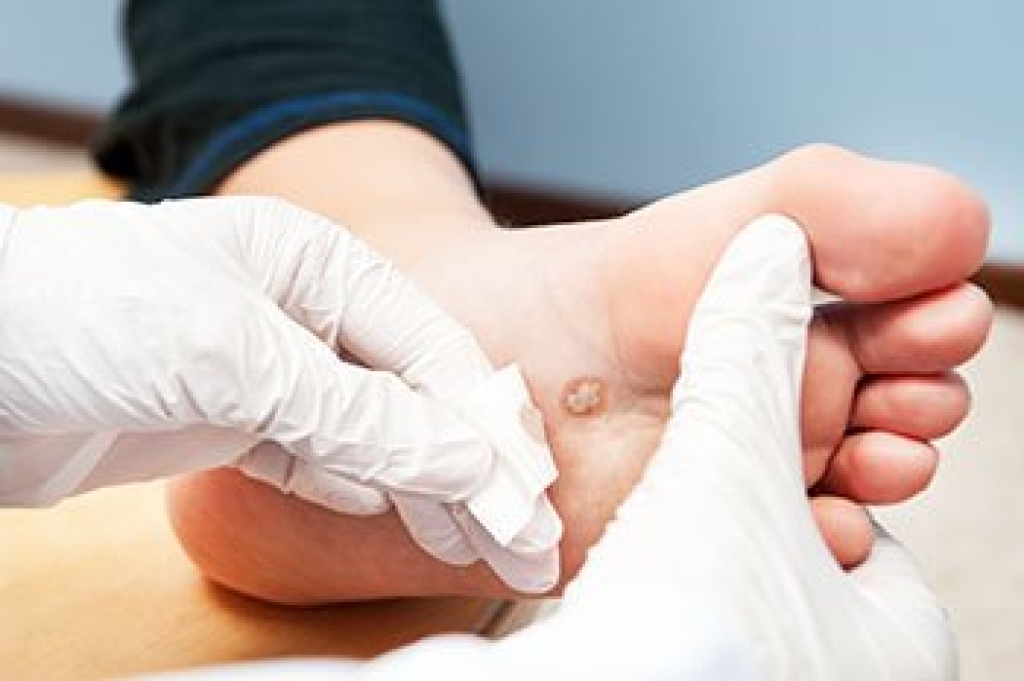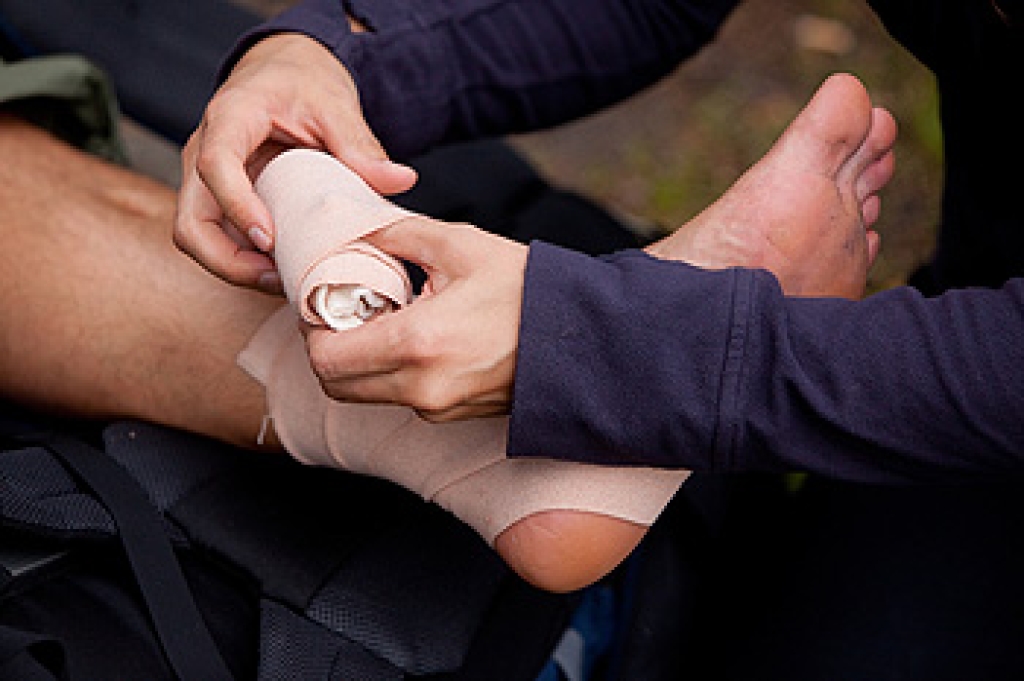 Warts on the bottom of the feet, known as plantar warts, are caused by a viral infection called HPV. Plantar warts can appear anywhere on the bottom of the foot. They are more common on the foot’s pressure points, such as the heel, toes, and balls of the foot. A plantar wart may appear by itself, or appear as multiple warts. Sometimes, multiple warts come together to form what looks like a firm, thickened plaque over a specific area on the bottom of the foot. The warts themselves may be gray, brown, yellow, or flesh-colored. Often tiny black dots, which are actually small, dilated blood vessels, can be seen on the surface of the warts. Sometimes plantar warts can become calloused or grow into the foot, which can make walking uncomfortable. If you have warts on the bottom of your feet, please consult with a podiatrist.
Warts on the bottom of the feet, known as plantar warts, are caused by a viral infection called HPV. Plantar warts can appear anywhere on the bottom of the foot. They are more common on the foot’s pressure points, such as the heel, toes, and balls of the foot. A plantar wart may appear by itself, or appear as multiple warts. Sometimes, multiple warts come together to form what looks like a firm, thickened plaque over a specific area on the bottom of the foot. The warts themselves may be gray, brown, yellow, or flesh-colored. Often tiny black dots, which are actually small, dilated blood vessels, can be seen on the surface of the warts. Sometimes plantar warts can become calloused or grow into the foot, which can make walking uncomfortable. If you have warts on the bottom of your feet, please consult with a podiatrist.
Plantar warts can be very uncomfortable. If you need your feet checked, contact one of our podiatrists from PA Foot & Ankle Associates. Our doctors will assist you with all of your foot and ankle needs.
About Plantar Warts
Plantar warts are the result of HPV, or human papillomavirus, getting into open wounds on the feet. They are mostly found on the heels or balls of the feet.
While plantar warts are generally harmless, those experiencing excessive pain or those suffering from diabetes or a compromised immune system require immediate medical care. Plantar warts are easily diagnosed, usually through scraping off a bit of rough skin or by getting a biopsy.
Symptoms
- Lesions on the bottom of your feet, usually rough and grainy
- Hard or thick callused spots
- Wart seeds, which are small clotted blood vessels that look like little black spots
- Pain, discomfort, or tenderness of your feet when walking or standing
Treatment
- Freezing
- Electric tool removal
- Laser Treatment
- Topical Creams (prescription only)
- Over-the-counter medications
To help prevent developing plantar warts, avoid walking barefoot over abrasive surfaces that can cause cuts or wounds for HPV to get into. Avoiding direct contact with other warts, as well as not picking or rubbing existing warts, can help prevent the further spread of plantar warts. However, if you think you have developed plantar warts, speak to your podiatrist. He or she can diagnose the warts on your feet and recommend the appropriate treatment options.
If you have any questions, please feel free to contact one of our offices located in Allentown, Easton, Northampton, and Chew Street in Allentown, PA . We offer the newest diagnostic and treatment technologies for all your foot care needs.

 Ankle sprains
Ankle sprains

